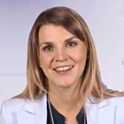Playlist
Show Playlist
Hide Playlist
Digital Transformation: Be Transparent in Every Way
-
Slides Digitalization for Companies.pdf
-
Download Lecture Overview
00:07 Our company motto is "Be transparent in every way." I've learnt that digital transformation is a process of change, and change, as much as feasible, requires communication. 00:20 As a result, making information open to the public provides more opportunities than threats. It is critical to speak freely and openly with one another in order to recognize those levers that occur without a doubt and derive the appropriate measures on this trip. 00:40 On two levels, I prepared some realistic examples. 00:43 On the one hand, we have the organizational level, and not all of us can directly affect an organization — as well as a few examples that each of you may immediately use in your own team. Let us begin at the organizational level. 01:00 I produced a sample for you called "Town Hall Meetings." That's how we refer to it. 01:06 All 1400 employees meet in the main office regularly and can ask questions. 01:11 There are also minor updates, not only from senior management but also from employees. 01:19 It's a good thing, in my opinion, because it fosters proximity and gives a communication platform for employees to raise questions at the team level. 01:30 One of my favorites is titled "Hot Chair." The goal here is for the manager to obtain feedback from the entire team. 01:41 It works like this: the management gives the staff 30 minutes to slam them. 01:48 Then they return, sit in the hot chair, and receive constructive feedback based on the motto: What should I refrain from doing? What should I keep doing? And what is something I could effectively start from scratch right now? I don't believe any of us enjoys receiving feedback. 02:11 However, I believe it is the only way to truly grow. 02:14 And, if you are a manager, it is also an excellent time to truly lead by example and build a culture that is open to making mistakes. 02:23 Another example is the "Cut the Crap" group at our organization. 02:27 This means that rotating employees gather once a month to consider which of the jobs they have are genuinely meaningless. 02:36 This has grown over time. 02:37 We have so many processes that it's worth asking, "OK if I only had half of my working hours, what would I leave out?" And which of the things I do no longer make sense in terms of the strategy? The following is an example: Communication equals change. 02:56 It is critical to create as much room and platforms as possible for this. 03:01 We have a platform called "Daily Stand Up." My team meets for 15 minutes every day to discuss ideas. 03:08 What are the plans for today? We check critical numbers, provide updates on our work, assist one another, and may set priorities as a team rather than each of us simply going to our desks and doing only what we are accountable for. 03:23 Another case in point is "Make Me Better." This can be done in small or large groups. 03:31 It works like this: I propose my project or concept to a large group in three minutes, and then the group provides me feedback and remarks. 03:43 What could I have done better? What should I pay attention to for my project or concept to evolve? Another example, or rather, a lesson offered by me, is that it is desirable to open your meetings to all staff. 04:05 Because, at the end of the day, we are all on the same trip. 04:08 As a result, we should have a language and a communication flow. 04:13 It operates like this in our company: We used to meet with the management every month to discuss the strategy and critical metrics. 04:21 We no longer do this. 04:22 Today is the meeting with everyone. 04:24 In my instance, about 30 employees meet once a month. 04:28 Last but not least, certain managers can work from a private office. 04:37 This was an opportunity that I did not take advantage of. 04:40 Instead, we converted the individual office into a team office, where we hold daily stand-ups and monthly team meetings. 04:49 Change, I feel, is only achievable if you set an example as an employee or a manager. 04:58 That is also my suggestion for you. 05:01 Be the role model you want your employees or colleagues to emulate, because you can change yourself but not others. 05:08 However, you can utilize your own behavior to inspire others to behave similarly. 05:18 Well, what tangible measures can you do today, other than perhaps altering, replicating, or translating a few instances for yourself? I believe it is always necessary to understand your colleagues and team members and to ask questions. 05:34 What information do you require? What piques your interest? What do you wish for? Which information is currently unavailable to you? That's the advice I'd like to give you. 05:45 I'm looking forward to seeing what you do with it.
About the Lecture
The lecture Digital Transformation: Be Transparent in Every Way by Nora Möbus is from the course Practical Examples of Digital Transformation with Nora Möbus.
Customer reviews
5,0 of 5 stars
| 5 Stars |
|
5 |
| 4 Stars |
|
0 |
| 3 Stars |
|
0 |
| 2 Stars |
|
0 |
| 1 Star |
|
0 |



